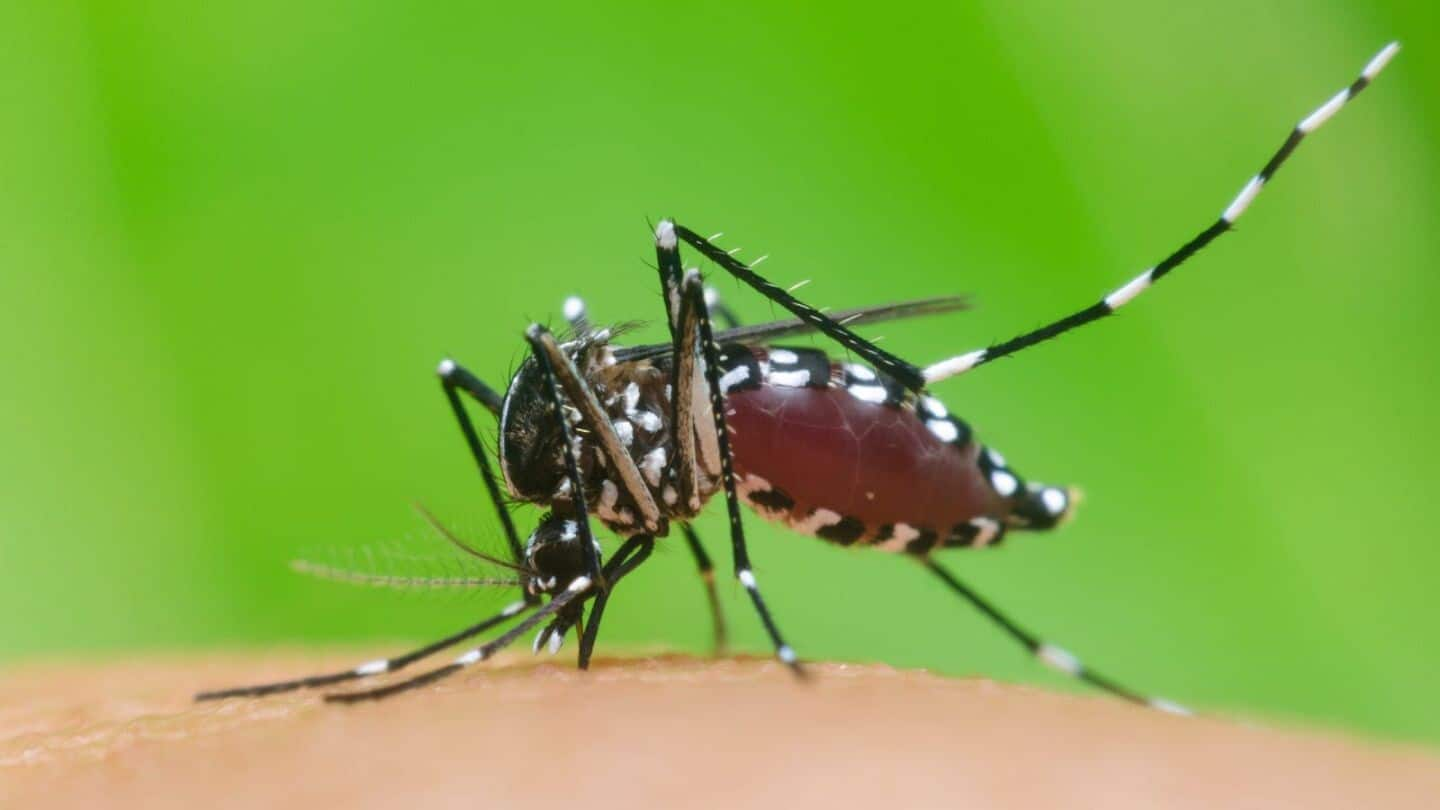
12.4mn dengue cases in 2024: What's driving world's largest outbreak?
What's the story
The world is witnessing its worst dengue outbreak ever, with a record 12.4 million cases reported this year. The virus, also known as "bonebreak fever," has seen a massive spike in Latin America, Africa, and Southeast Asia. Cases are now also being reported in Europe and the United States, putting an estimated four billion people at risk worldwide.
Global risk
Dengue's rapid spread: An 'alarming trend'
The World Health Organization (WHO) estimates that the number of people at risk could increase to five billion by 2050. WHO Director-General Dr. Tedros Adhanom Ghebreyesus termed the rapid spread "an alarming trend" and launched a global strategy to fight dengue and related diseases. Climate change, urbanization, and increased migration are among the factors behind the outbreak.
Disease vectors
Mosquito species and climate change fuel dengue spread
The Aedes aegypti mosquito, which is mainly found in Southeast Asia, is a major vector for dengue. The Aedes albopictus species, on the other hand, is moving into Europe and the Americas. Climate change is a major factor in this expansion as extreme weather events such as flooding create new breeding grounds for mosquitoes and heatwaves speed up their reproduction cycles.
Health impact
Undiagnosed cases and severe immune responses
Many dengue cases go undiagnosed as they present mildly or asymptomatically, Dr. Najmul Haider said. A second infection with a different serotype of dengue can trigger severe immune responses and organ failure. In Brazil, all four serotypes are circulating simultaneously for the first time, which raises the risk of severe infections.
Medical developments
Rising mortality rates and ongoing clinical trials
Historically, dengue has been a lower priority than diseases like malaria, as it has lower death rates. However, Professor Sophie Yacoub observed an increase in mortality rates due to obesity, diabetes, etc. There is currently no specific treatment for dengue; hospital care supports the body during infection. Clinical trials are underway to find effective treatments, including repurposing existing antivirals.
Treatment prospects
Dengue vaccines and traditional remedies
Two vaccines are available: Dengvaxia and Qdenga. While Dengvaxia only works for those previously infected, Qdenga appears promising in controlling outbreaks in Brazil. In some areas, traditional remedies such as papaya tea are used despite limited scientific evidence. Dr Michael Head acknowledged potential benefits but stressed the need for further research into effective treatments.